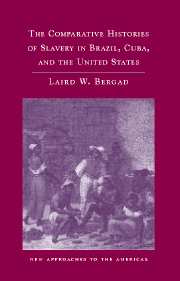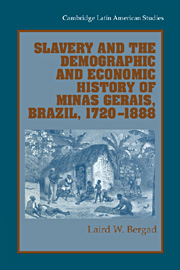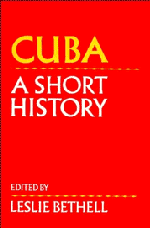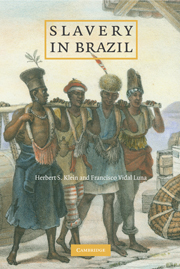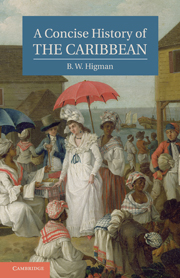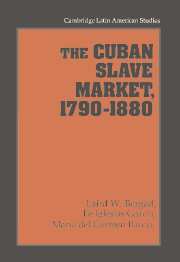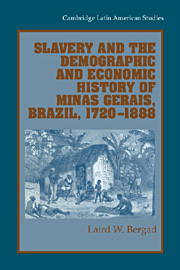The Comparative Histories of Slavery in Brazil, Cuba, and the United States
£26.99
Part of New Approaches to the Americas
- Author: Laird Bergad, City University of New York
- Date Published: October 2007
- availability: Available
- format: Paperback
- isbn: 9780521694100
£
26.99
Paperback
Other available formats:
Hardback, eBook
Looking for an inspection copy?
This title is not currently available on inspection
-
This 2007 book is an introductory history of racial slavery in the Americas. Brazil and Cuba were among the first colonial societies to establish slavery in the early sixteenth century. Approximately a century later British colonial Virginia was founded, and slavery became an integral part of local culture and society. In all three nations, slavery spread to nearly every region, and in many areas it was the principal labor system utilized by rural and urban elites. Yet long after it had been abolished elsewhere in the Americas, slavery stubbornly persisted in the three nations. It took a destructive Civil War in the United States to bring an end to racial slavery in the southern states in 1865. In 1866 slavery was officially ended in Cuba, and in 1888 Brazil finally abolished this dreadful institution, and legalized slavery in the Americas came to an end.
Read more- This is the first comparative history of slavery in Brazil, Cuba, and the US
- Draws upon an extensive bibliography of most published works on slavery in the three nations
- Written by an author with extensive experience and an impressive list of publications based upon research with sources in Brazil and Cuba
Customer reviews
Not yet reviewed
Be the first to review
Review was not posted due to profanity
×Product details
- Date Published: October 2007
- format: Paperback
- isbn: 9780521694100
- length: 342 pages
- dimensions: 226 x 152 x 20 mm
- weight: 0.5kg
- contains: 5 tables
- availability: Available
Table of Contents
Introduction
1. From colonization to abolition: patterns of historical development in Brazil, Cuba, and the United States
2. The diversity of slavery in the Americas to 1790
3. Slaves in their own words
4. Slave populations
5. Economic aspects
6. Making space
7. Resistance and rebellions
8. Abolition
Bibliography.Instructors have used or reviewed this title for the following courses
- American Civilizations: The Black Experience in the Atlantic World
- Comparative Slavery in the New World
- History of the Caribbean and the Atlantic World
- The Caribbean and the Atlantic World
- US History in Global Context
Sorry, this resource is locked
Please register or sign in to request access. If you are having problems accessing these resources please email [email protected]
Register Sign in» Proceed
You are now leaving the Cambridge University Press website. Your eBook purchase and download will be completed by our partner www.ebooks.com. Please see the permission section of the www.ebooks.com catalogue page for details of the print & copy limits on our eBooks.
Continue ×Are you sure you want to delete your account?
This cannot be undone.
Thank you for your feedback which will help us improve our service.
If you requested a response, we will make sure to get back to you shortly.
×
